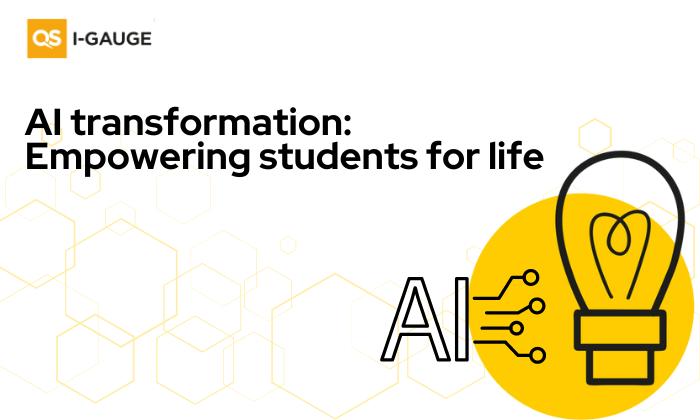
Tech To TextBooks: Navigating The Impact Of AI In Education
Isn’t it fascinating that with one command we can do anything we want, whether it's asking Alexa to play music or finding answers on Chatgpt? Well, this has all been possible because of AI. Since its inception, it has helped us in so many ways, from helping companies be more efficient in their processes to personalising medical treatments, AI can do it all!
AI has emerged as a powerful tool, that can be used in unlocking the true potential of a child and helping them achieve success. In this blog, let us delve deeper and gain an understanding of the future of AI in education and its impact on students' learning experiences. So buckle up, and get ready to pave the way for success.
Enhancing Learning Experience Through AI
Through personalised learning experiences and adaptive feedback systems, AI empowers students to thrive in their academic pursuits. Imagine a scenario where an AI-powered virtual tutor assesses each student's strengths and weaknesses and provides targeted guidance and resources in real-time.
This personalised approach boosts motivation and also increases students' engagement in the subject. Furthermore, AI can analyse students' progress and accordingly adapt some instructional methods, thus ensuring that students are challenged but they are not overwhelmed with the syllabus.
Beyond personalisation, AI also plays a vital role in optimizing support services for students. Intelligent chatbots can assist learners with queries related to course selection, enrollment processes, or even mental health resources. This round-the-clock availability ensures that students have access to crucial information when they need it most.
Empowering Educators with AI
The impact of AI in education is not only about helping students but is also empowering educators. By using AI, educators can benefit from a wide range of tools and resources that will enhance their teaching capabilities. One such tool is an AI-driven curriculum development system that will help educators create dynamic and tailored course content.
In addition, AI-based student performance monitoring systems can provide real-time insights into student progress, enabling educators to identify areas where students may require additional support or intervention. These systems use machine learning algorithms to track individual student performance patterns and this not only saves time for educators but also allows them to focus on students who are struggling.
Moreover, AI-powered virtual assistants offer valuable resources to both teachers and students. They can provide answers to queries, provide explanations, and offer guidance. With this assistance at their disposal, educators can concentrate more on fostering critical thinking skills and engaging with students on a deeper level.
Future of AI in Education
As we think about the impact of AI in education, which was once solely handled by humans, we notice that we have already taken a step towards the future. While AI has the potential to improve student's learning experiences and also help teachers, it also has its fair share of challenges.
One such challenge that we face is ensuring that AI systems are developed to help teachers rather than replace them. Educators play an important role in guiding students through their educational journey and AI can used to make their work easier and enhance their teaching methods.
Another crucial consideration lies in connecting digitization with education. As some universities utilize the power of AI to improve their curriculum, it is important to realize that not all institutions will be able to do the same, because of limited finances. To ensure that every student receives the best possible education, proactive steps need to be taken to provide equal opportunities for all students and institutions, regardless of their financial standing.
Amidst these challenges lies a hope for a better future of AI in education. Through personalised learning experiences that are tailored to each student’s needs, we can improve academic scores and pave the way for success. As teachers embrace AI as an ally rather than viewing it as a potential threat, they can use it to enhance their teaching methods and help students achieve what they desire.
Conclusion
To sum up, the impact of AI in education has empowered educators to deliver a personalised and effective learning experience for their students. Although challenges such as ethical considerations, the overall impact of AI in education is promising. As we stride confidently into the future, let us embrace the possibilities offered by AI in higher education for a brighter tomorrow.
Disclaimer
The views and opinions expressed in this blog do not necessarily represent those of QS-ERA India Private Limited and/or its employees, partners, shareholders, or other stakeholders.







Leave Your Comments